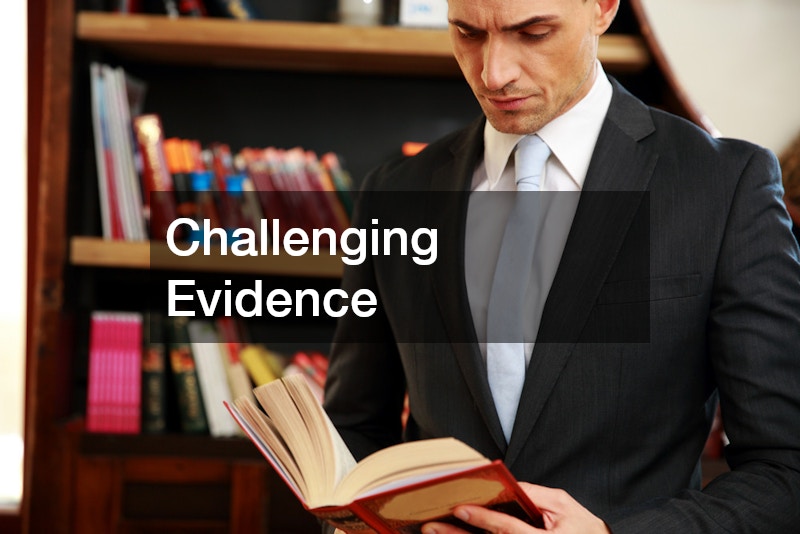
DUI cases present an array of complexities and challenges that can be overwhelming to navigate without specialized legal assistance. The legal system is often complicated and unforgiving, making it crucial to have an experienced advocate on your side. DUI attorneys are specialists trained to provide the support and advocacy needed to tackle these formidable cases effectively.
Negotiating Plea Bargains
A DUI attorney’s skills in negotiating plea bargains are pivotal in potentially reducing the penalties faced by the accused. Through adept negotiation tactics, experienced attorneys can engage with prosecutors to lower charges or sentencing.
This legal strategy may lead to less severe consequences, preserving one’s personal and professional life.
Plea negotiations can significantly alter the course of a DUI case, and having a seasoned advocate facilitates this process. With a deep understanding of legal nuances, attorneys can leverage aspects of the case to benefit the client’s position. This often results in outcomes that are more favorable compared to facing the legal system without representation.
The ability to negotiate effectively is a key advantage of hiring a DUI attorney. They work to find common ground where charges may be amended in exchange for admission to lesser charges or other conditions. Such resolutions can ultimately mitigate the long-term impact of a DUI conviction on one’s record.
Understanding Complex DUI Laws
DUI laws vary from state to state, and understanding these complexities requires specialized legal knowledge. A DUI attorney is well-versed in the intricacies of state-specific laws and procedures surrounding DUI cases. Their expertise enables them to craft a defense strategy that is tailored to the particular legal landscape of the jurisdiction.
These legal specialists stay updated with evolving laws, ensuring that strategies employed are current and effective. Knowledge of local law enforcement procedures and the nuances of the court system further bolster their ability to defend clients. This preparedness ensures that any potential errors or procedural missteps are identified and leveraged in favor of the accused.
In a system where details matter, the ability to interpret and apply complex legal statutes is invaluable. A thorough grasp of DUI laws allows attorneys to identify areas of the case where defense can be bolstered or prosecution evidence undermined. This knowledge serves as a powerful tool in shaping the outcome of DUI proceedings.
Challenging Evidence
In a DUI case, the prosecution often relies heavily on evidence such as breathalyzer results and field sobriety tests. A DUI attorney scrutinizes such evidence meticulously, identifying inconsistencies and inaccuracies. By challenging the validity of the evidence, attorneys can significantly weaken the prosecution’s case against the defendant.
For instance, improperly calibrated tools or mishandling of samples can render certain evidence inadmissible. Attorneys frequently request thorough examinations of testing procedures and chain-of-custody records. This defense tactic can often lead to evidence being excluded, resulting in reduced or dismissed charges.
Furthermore, DUI attorneys are adept at questioning the credibility of an arresting officer’s testimony. Through cross-examination, they can expose potential biases or errors in the officer’s administration of sobriety tests. Each step in challenging the evidence helps to build a robust defense, safeguarding the client’s interests.
Alternatives to Incarceration
In instances where case dismissal isn’t feasible, DUI attorneys aim to reduce sentencing severity through alternatives to incarceration. Options such as probation, house arrest, or community service offer feasible means to avoid jail time. An attorney’s negotiation finesse is pivotal in advocating for these alternative sentences during hearings.
This strategy reflects the attorney’s aim to mitigate the punitive impacts of a DUI conviction while encouraging rehabilitation. Attorneys present compelling arguments focused on the client’s personal circumstances, achievements, and community contributions to support alternative sentencing. Such outcomes not only reduce incarceration likelihood but also facilitate rehabilitative goals.
Alternatives to incarceration preserve one’s daily life and responsibilities while serving as corrective measures. The role of a DUI attorney is integral in crafting persuasive arguments emphasizing rehabilitation over punishment. This approach showcases the attorney’s commitment to minimizing the disruption caused by DUI proceedings.
License Reinstatement Assistance
A DUI conviction often results in the suspension or revocation of one’s driving license, affecting mobility and daily responsibilities. DUI attorneys play a crucial role in navigating the process of license reinstatement following a suspension. Their guidance and advocacy significantly impact the restoration of driving privileges.
Attorneys can assist in presenting a strong case for reinstatement, adhering to all procedural requirements mandated by the court or DMV. This might include compliance with educational programs, filing necessary paperwork, and representing the client in license hearings. These efforts focus on expediting the return of driving privileges and normalcy.
In addition to reinstating licenses, DUI attorneys provide counsel on maintaining compliance with conditional driving privileges if applicable. This post-conviction assistance ensures clients understand and adhere to any restrictions. Through these actions, attorneys support the path to recovery and reintegration into routine life post-DUI charge.
The role of a DUI attorney is pivotal in navigating the legal complexities and achieving favorable outcomes for their clients. Their expertise in reducing penalties, challenging evidence, and exploring all avenues for mitigation shines through in each aspect of a dui case. By providing specialized knowledge and advocacy, these attorneys act as invaluable allies during challenging legal proceedings.
.




